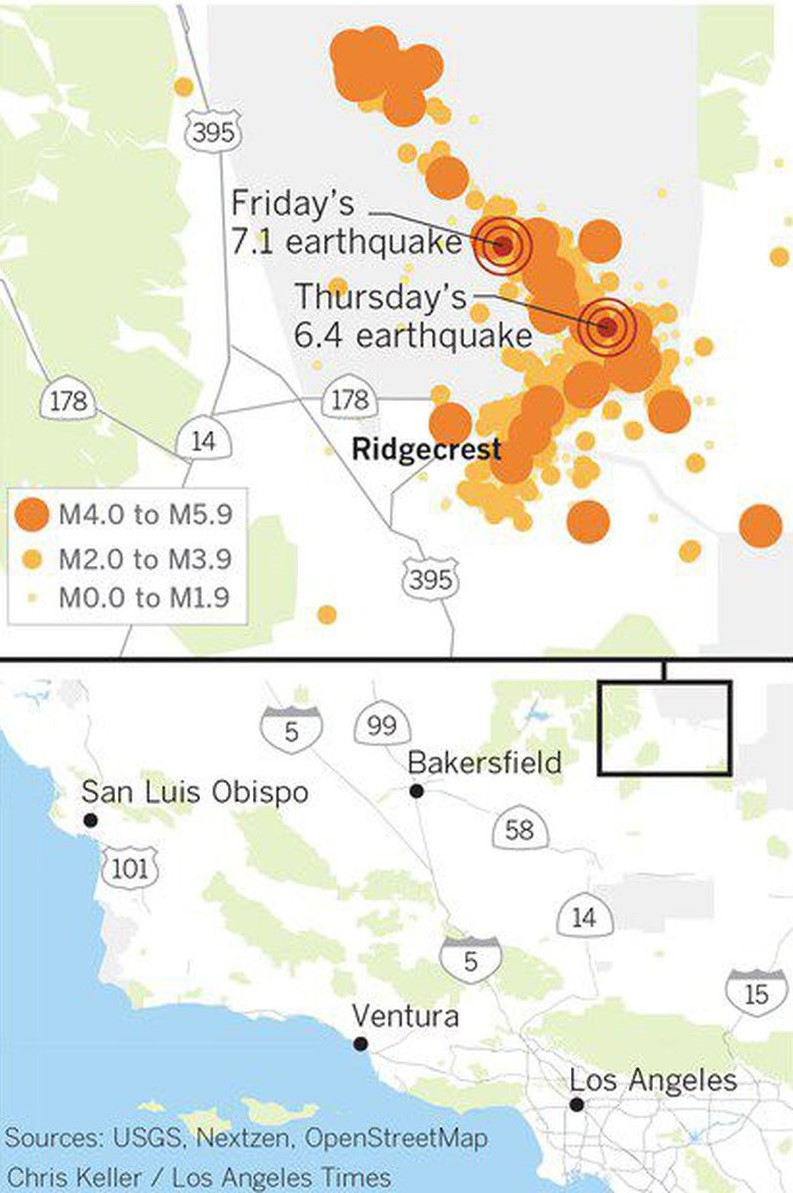With the 7.1 earthquake July 5, 2019 in Ridgecrest, California, Mother Nature reminded us yet again that you do indeed need earthquake insurance. The 7.1 quake shook an area that had just the day before been shaken by a 6.4 earthquake on the July 4th. holiday. The result of all of this is that many homeowner’s suffered cracked walls, collapsed foundations, loss of water, power, and in some cases, loss of use of their home.
Let’s clear up some common misconceptions right now. Your standard homeowner’s insurance policy does not cover damage from earthquakes (stated as “earth movement” in many policies). If you are unable to use your residence due to a quake, you are on the hook for repairs and the cost of displacement (paying to stay somewhere else). Your policy may however cover fire after an earthquake. Renters, you are not safe either. Your renter’s policy does not cover earthquakes. Many renters think they are covered by their landlord’s policy. Surprise! Your landlord’s coverage does not cover you! So, don’t think your landlord’s policy will cover replacement of your valuables or for you to stay in an alternate dwelling (displacement) during reconstruction.
If you don’t believe me, call your insurance company and ask them. Be sure to ask your agent a few different ways: am I covered for earthquakes? does my policy cover displacement due to quakes? does my policy cover repairs if my house slips off of its foundation due to a quake? Going without earthquake insurance is very risky in places such as California that have frequent quakes. Even small quakes can cause expensive damage to a home’s foundation or infrastructure.
Damaged home, near epicenter, in Trona, California, US. (Photo: Reuters)
Many folks remember the days when earthquake insurance was unaffordable to most. Times have changed and you can structure a policy to fit your needs through the California Earthquake Authority. You should start by getting a free estimate from CEA. By walking through the CEA estimator, you can craft an affordable policy. Here are ways to make your policy affordable:
Consider a higher deductible and self-insure for a larger amount. Hopefully you have your emergency fund in place and a quake would definitely be an emergency!
Reduce personal property coverage. Really assess what you need and what’s not worth insuring.
Ask CEA about discounts for retro-fitting already done (i.e., shear-walling, anchoring, etc.).
Reduce breakable items coverage unless you have very expensive dishes, glassware, and collectibles.
Renters, your focus will likely be on displacement coverage and personal property replacement given that you are not the dwelling owner. A renter’s earthquake policy is very affordable given that you may need to find a new home.
This brings me to a final point that I wrote about during the firestorms. Make sure you have all of your vital documents ready and available in a grab-n-go binder or folder that is easy to locate and portable. You can read more at Do You Have a Special Grab-N-Go Emergency Binder.
As an independent Certified Financial Planner™, I can help you plan for the unexpected to mitigate risk.Contact me and let’s get started. #talktometuesday #education #Hireaplanner #Ridgecrest #quake #earthquake #risk #insurance #safetyfirst #California #CaliforniaEarthquakeAuthority


